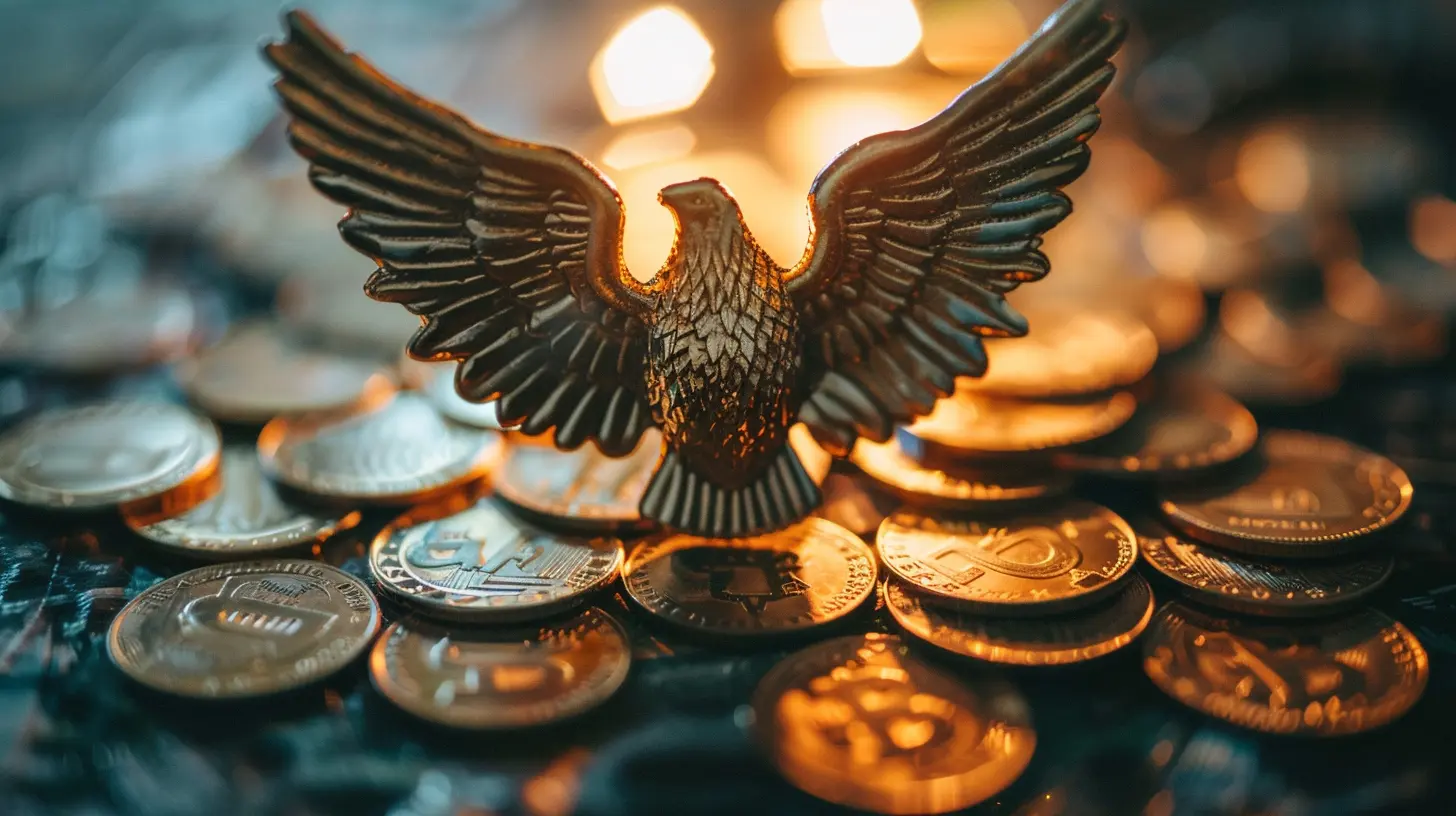Angel Investors on Startup Valuation: What You Need to Know
1 June 2025
Starting a business is a thrilling rollercoaster ride, isn’t it? You've got the idea, the passion, and the drive, but you need one major thing to make it all happen—money. That’s where angel investors swoop in, almost like financial superheroes, to help you turn your dream into a reality. But here’s the catch: they’re not just throwing their money around willy-nilly. Angel investors want to know, “What’s this startup worth?” That’s where startup valuation comes in.
Now, I know what you’re thinking: Valuation? Isn’t that just some fancy word finance people throw around? Well, yeah, but it’s also one of the most important things to understand when you're raising funds. So, let’s break it down together. By the end of this, you’ll know exactly what angel investors are thinking when they look at your startup’s valuation—and how you can make yours irresistible.
What Is Startup Valuation Anyway?
First off, let’s clear up what “startup valuation” actually means. In the simplest terms, it’s the process of determining how much your company is worth at a specific point in time. Think of it as a price tag for your business.But here’s the kicker: valuation isn’t always about cold, hard numbers. Especially for startups, it’s more about potential. Angel investors aren’t just looking at where you are right now; they’re trying to figure out where you could go. It’s like buying a plot of land—not because of the shack that’s currently on it but because of the mansion you could build there someday.
Why Do Angel Investors Care About Startup Valuation?
Let’s get inside the mind of an angel investor for a second. These folks typically invest early in startups, often before there’s a proven track record of revenue or profit. That makes their investment risky—really risky. But it also means there’s room for huge payoffs if the startup succeeds.For angel investors, startup valuation does two critical things:
1. It determines how much equity (ownership) they’ll get in exchange for their investment.
For instance, if your company is valued at $1 million and they put in $100,000, they’ll get 10% ownership.
2. It helps them decide if your startup is worth the risk.
Is your valuation realistic, or are you overhyping yourself? (Spoiler alert: angels hate overhyped valuations.)
Basically, your valuation is their way of measuring, “Is this a smart bet?”
Factors That Influence Startup Valuation
Here’s the million-dollar question: how do angel investors actually figure out what your startup is worth? Unlike established companies, startups don’t have years of financial statements to rely on. So, they have to look at other factors to assess your potential. Here are the big ones:1. The Team
Investors often say they invest in people, not ideas. That’s because a killer team can pivot, solve problems, and execute ideas, even if the original plan doesn’t pan out. If your team has experienced founders, industry experts, or people with a proven track record of success, your valuation gets a boost.Think of it like this: Buying into a startup with a strong team is like betting on a racehorse with a history of winning—it’s a safer gamble.
2. The Market Opportunity
Angel investors want to know, “How big is the pie your startup is slicing into?” If you’re solving a problem in a massive market with tons of potential customers, your valuation could skyrocket. But if your market is small or niche, it might work against you.Pro tip: Always back your claims with data. Saying “the market is huge!” without stats to prove it is like saying “trust me” on your first date—it’s not convincing.
3. The Product or Service
Is your product innovative? Does it solve a real problem? Better yet, do you already have a prototype or minimum viable product (MVP)? Angel investors love seeing that you’ve got something tangible because it shows you’re not just daydreaming—you’re actually building something.If you can demonstrate customer traction or positive feedback (even in small amounts), it’s like sprinkling gold dust on your startup’s valuation.
4. Revenue and Traction
Let’s face it: early-stage startups often don’t have any revenue yet. But if you do have paying customers or strong user traction, it’s a game-changer. Angel investors will take it as a sign that there’s real demand for what you’re offering.Think of traction as your startup’s dating profile. It makes you more attractive and says, “Look, other people are interested in me too!”
5. Competition
Every angel investor knows competition isn’t necessarily a bad thing—it means there’s a market for what you’re doing. But here’s the twist: they want to see what sets you apart. What’s your unique value proposition (UVP)? Why would customers choose you over someone else?If you can say, “We’re Starbucks in a world of instant coffee,” you’re on the right track.
6. The Stage of Your Startup
Angel investors understand that startups evolve over time. If you’re at the seed stage (just getting started), your valuation will likely be lower. If you’re further along and scaling, it’ll likely be higher. That’s just how the startup lifecycle works.
How Angel Investors Estimate Valuation
Now that you know the factors, you might be wondering, “So, how do they actually put a number on it?” Great question. Here are some of the most common methods angel investors use:1. The Comparable Method
This is like checking Zillow to see how much similar houses are selling for in your neighborhood. Investors look at other startups in your industry and stage to get a sense of what’s “normal.”2. The Berkus Method
This is a popular method for early-stage startups. It assigns value based on different components like your team, product, and market potential. Typically, each component is worth up to $500,000, and the total valuation caps at around $2-3 million.3. Discounted Cash Flow (DCF)
For slightly later-stage startups with some revenue, investors might use this method. It estimates the present value of your future cash flows—but let’s be real, most early-stage startups aren’t generating enough revenue to make this method useful.4. Venture Capital (VC) Method
This is all about the potential upside. Investors calculate what your company could be worth in the future and work backward, factoring in how much of a return they want.Red Flags That Turn Angels Away
Not every startup gets the golden ticket. Here are a few valuation mistakes that can spook investors:- Overvaluing Your Startup: Asking for the moon without proof to back it up? That’s a hard no.
- Unrealistic Revenue Projections: Saying you’ll make $100 million in Year One screams “I’m clueless.”
- Weak Market Research: If it looks like you haven’t done your homework, why should they bet on you?
Tips for Negotiating with Angel Investors
So, how do you ace the valuation game? Here are some tips:1. Do Your Homework: Know what startups like yours are being valued at. It’ll help you set realistic expectations.
2. Build Relationships: Angel investors invest in people they trust. Build rapport; it goes a long way.
3. Don’t Be Greedy: Be willing to give up a reasonable share of equity. Valuation is important, but so is getting the deal done.
Final Thoughts
At the end of the day, getting angel investors on board is about more than just numbers—it’s about storytelling. You’re inviting them to believe in your dream. Your startup valuation is part of that story, but it’s not the whole thing. So be confident, do your research, and show them why you’re worth betting on.all images in this post were generated using AI tools
Category:
Angel InvestorsAuthor:

Lily Pacheco
Discussion
rate this article
2 comments
Grey Bowman
Valuing a startup with angel investors is like trying to price a unicorn: magical, elusive, and often leading to spontaneous bursts of laughter. Remember, angels might have wings, but they’ll still want grounded numbers!
June 3, 2025 at 3:20 AM

Lily Pacheco
Thank you for the insightful comment! You’re absolutely right—valuing startups can be tricky, and balancing the dream with realistic figures is key for both entrepreneurs and angel investors.
Seraphine Weber
Angel investors significantly influence startup valuations by assessing potential, market fit, and scalability, demanding thorough preparation and a compelling pitch from entrepreneurs.
June 1, 2025 at 5:05 AM

Lily Pacheco
Thank you for your insight! You're absolutely right—angel investors play a crucial role in shaping startup valuations through their careful evaluation processes.


